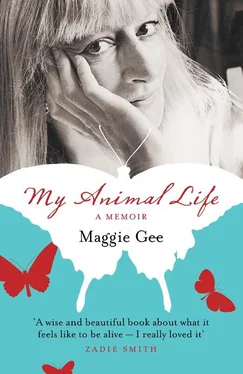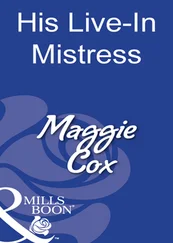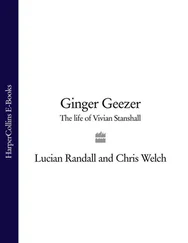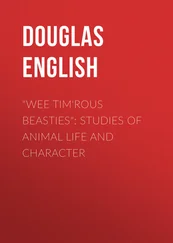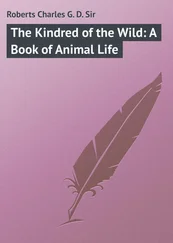‘The Club’, the railway works pub-come-social club, was almost opposite number 62 Peel Road, and I associated it with happiness. Going up alone at night, since I was the youngest, to the dark first floor of my grandparents’ Victorian house, creeping into my soft snow-cold feather-bed with its small warm heart, the stone hot water-bottle put there in advance, I would wait shivering until the music across the way began, and the hum of male voices; then the light from the club, getting brighter as night fell, imprinted through the curtain an intricate, impossibly beautiful, longed-for pattern of lace on the wall.
Why couldn’t Grandpa buy his own drinks? ‘There’s always someone wants to buy me a drink,’ he divulged, and offered me another treacle toffee, a paper bag of which soft dark brown squares he always kept in the pocket of his jacket ‘to keep himself regular’, as Grandma explained, for pleasure in this ascetic family always needed justifying, except for my grandfather’s fondness for drink. At tea (which was also supper) there was a clear rule, no jelly or fruit cake without bread and butter.
Grandpa was a trim, fit man, with bristling white hair, kept short, and a neat moustache to disguise what might have been a hare lip but was actually damage he did himself as a young man in Cosgrove, the canal-side village where he grew up, by diving from the bridge into too-shallow water. ‘Pa’ (as both my parents called him) wore collarless striped shirts and a buttoned, fitted grey waistcoat, always smart, with a watch and watch-chain, which leads me to his special skill as a watch-maker and mender, with a workshop in the garden which was sacrosanct, next to the outside lavvy with its puzzling neat squares of torn newspaper speared on a hook. He sat in his workshop, visible through the open top of the split ‘stable-door’ he had put on, peering down god-like through his monocle-like watch-glass at the tiny gleaming mechanical galaxies of cog and spring he had opened up. No one dared disturb him there, still less go in and touch the minute spread pieces of metal that in my memory would cover the whole of his work-top like hard glittering fallen petals, infinitely interesting but forbidden. Once or twice he let me look in, but always with a firm, ‘Don’t touch, my duck.’ Did he understand how I longed to, loving as I always did (and still do) the detailed and microscopic? He made three grandfather clocks for his three sons, the wooden cases slightly dull but the faces meticulously scrolled and furled and the hands like the elegant dark outlines of heads of herons.
Pa was also his chairs; where the rest of the family relaxed in armchairs or on the brown cracked leatherette sofa with its worn velvet cushions, Pa was only ever seen to sit perfectly erect in one of two upright wooden carver chairs he had made, one at the head of the table in the kitchen where we ate, one, with a pale blue-green-silver brocade slip-over cushion sewn by Grandma to soften the back, in the little dark sitting-room, semi-obstructing the door to the hall, an en-garde throne where no one but Grandpa ever dared to sit.
It was a family of men, one of those families genetically biased towards boys. My father was one of three brothers, three sons, Cecil, Victor and Lloyd, though my grandmother was said to have wanted a girl so much that she kept my father’s blond locks long till he was five years old, thus causing him to be known as ‘Mrs Gee’s Fairy’ — not easy, especially when you secretly know you have a cissy second name, Valentine. Only Lloyd achieved parity between the genders, with a boy and a girl, Martyn and Susan, who (miraculously) always seemed to get on. Cecil had one son, clever Keith, who produced three boys; Vic had me, of course, and I, very late but lucky, gave birth to a girl, but he also had two boys, my brothers John and James, who fathered six boys between them. I grew up very used to men.
Grandma Gee probably suffered from men, and certainly suffered from Pa, who was difficult. A lean, driving, impatient, intelligent man who had been a sprinter, and still walked, in old age, at a furious pace, despite his doctor warning him to slow down. He did so, on his morning walk, for the few yards of pavement that passed the doctor’s surgery, then sped up to a military clip again, a little deception of which he often boasted. Grandma and Grandpa Gee’s arguments were bad, and my father, who as a boy had always been drawn in on his mother’s side, and still did, as an adult, get enmeshed in Oedipal fights against his father which made us children tremble, later decided that Pa had sometimes been right; perhaps because he saw himself in turn becoming Pa, with a manifestly suffering wife, and with children, my brother and me, who’d been turned against him. The first argument between my parents I remember was when I was six or seven, at Watersfield, when I came home from school for lunch. I think it was about food; why was my father at home? Was Mum’s cooking not up to the occasion? I think she had cooked bubble-and-squeak, fried-up potatoes and cabbage, which was something the Church family ate and was actually one of my early childhood favourites; maybe it wasn’t good enough for Dad, who had very recently become a headmaster, pulling himself up with pure determination by his own boot-straps; maybe he wanted food that spoke of their new bright future. What was terrible was seeing my mother cry at table, and my father saying, ‘I have no respect for tears, Ma always used tears.’
Ma: Grandma Gee. The frailest of my four grandparents, dying relatively young, in her seventies.
Charlotte or Lottie Gee née Brown looked small and delicate (though plump, liking peppermint imperials ‘for my digestion’), with a tiny nose, round cheeks, dimples I inherited and bright blue eyes. By the time I remember her, she had fine pleated pale skin, curled white hair and a chronically bad hip, as well as diabetes and Raynaud’s disease — fingers and toes whose blood-vessels go into spasm with cold, turning whitish-blue, and when the blood-flow suddenly returns, an alarming reddish-purple (she died, in the end, from a heart attack followed by gangrene). She still loved clothes, particularly hats, and elaborately pin-tucked blouses worn with brooches over her big soft bosom, and was prone to tell me things I had never thought about, but liked, such as ‘Yellow suits you.’ Grandma made a pet of me, I think because Pa made a pet of my cousin Susan, the only other girl in my generation of Gees, daughter of Vic’s brother Lloyd. Sue was very slightly younger than me, and much prettier, with the big blue family eyes (mine were green) and a perfect button nose (mine was long and Irish), and lived in Wolverton, thus having the advantage of playing for the home team. Sue had what seemed to me a huge wardrobe of wonderful dresses, because her mother Aunty Hilda, unlike my own beloved mother, was good at buying and making clothes. But Grandma, known to everyone but her grandchildren as Ma, took me into her bed as a treat in the mornings and whispered the unthinkable: ‘Susan isn’t prettier than you.’ I must have asked her, or she wouldn’t have said it. ‘You’ll be very pretty one day.’ This was amazing; I was skinny, with glasses, but perhaps if Grandma said so it was true. (I have a vague uneasy memory of checking what Grandma had said with Grandpa. I really wanted to know: ‘Am I prettier than Susan? Grandma says I am’ — which was not exactly what she had said, but was what I hoped to hear. ‘No, you’re not.’ Serves me right.)
Grandma made me pretty clothes. I was helped to be a girl by the extended family. My mother’s deficiencies as a dress-maker must have been common knowledge, because everyone made me clothes, some of them remarkable: Grandma knitted me an outfit of multiple pieces in royal blue wool — (is blue royal any more? richer, deeper than sky-blue) — that had a short gathered skirt with buttoned over-the-shoulder straps, a beret, and a bibbed one-piece bathing suit. When I outgrew it she knitted me another bibbed swimsuit I liked even better, orange with a sharp white edge. Best of all, she made me a fluffy white angora bolero, softest, lightest, whitest delight. Aunty Ede, Ma’s sister, who had worked in the cotton-mills in Leeds (was it my father who told me that the three sisters came south from Bradford?) sent a work of art when I had just started junior school, a wonderfully busy cardigan with eight large cats’ faces, four on each side, knitted in relief, with green eyes and embroidered whiskers, and the neck and cuffs edged with knitted piecrust frills in scarlet, drawn in with scarlet threads finished with pom-poms. With what passion I wore it to school and accepted compliments (it must have dazzled, in the austere post-war world of the 1950s), how vividly it shines more than fifty years later from the phantom closets of my childhood. Aunty Elsie, on my mother’s side, posted, about a year later, just before we moved to Watersfield, a dress of great beauty. Indeed the most beautiful dress I had ever seen: filmy white muslin with raised dots of pale blue, pale blue smocking across the bust, white Peter Pan collar decorated with palest blue ‘S’-bending ric-rac braid, one row of it there and two on the hem, and puffed sleeves. Tragedy: it was too small (and my father was cross: I cried and insisted it fitted, as it strained and creaked under the arms, and he blamed Aunt Elsie because she was from my mother’s side). Compensation: Elsie also sent a white satin petticoat, frilled, which was almost as pretty and fitted me perfectly, though I was never allowed to wear it on its own to birthday parties, as I wanted. When I was confirmed, yet another aunt, Bertha, my godmother, made me a white gathered skirt and blouson boat-necked top from a stiff heavy material that proclaimed my fourteen-year-old virtue (would any fourteen-year-old girl now living in Britain accept, sight unseen, a skirt and top sewn by her aunt?) But I wanted to like it, and did: on family windfalls rested my adolescent hopes of femininity and glamour.
Читать дальше
